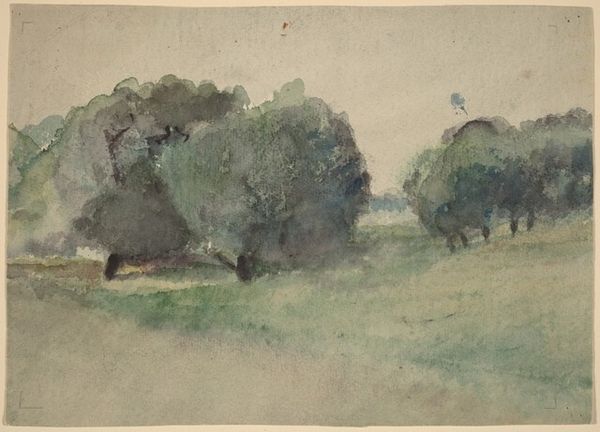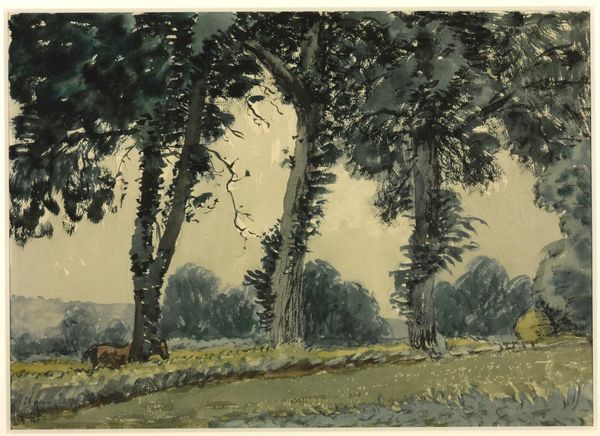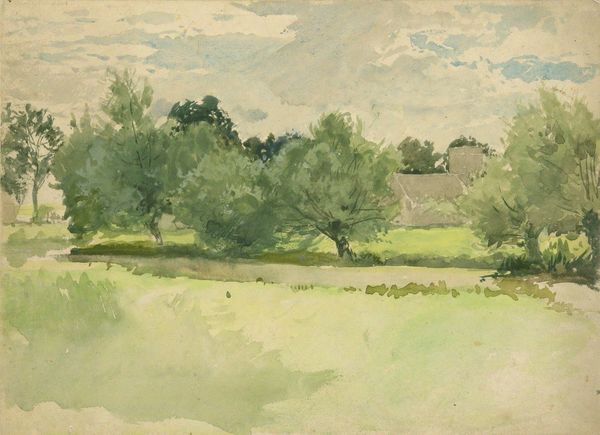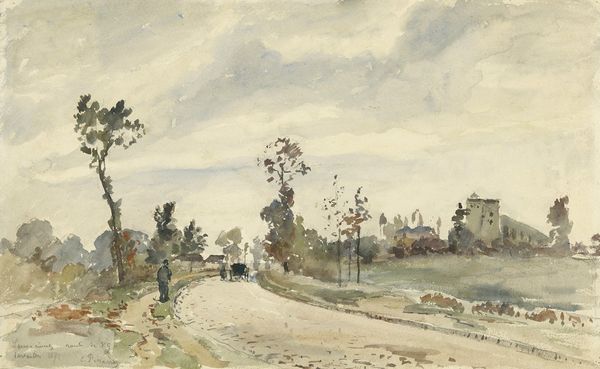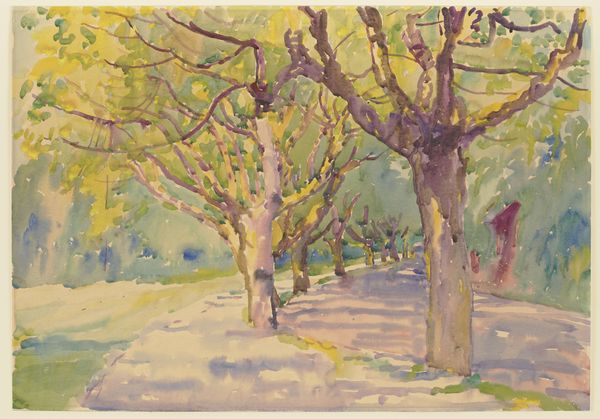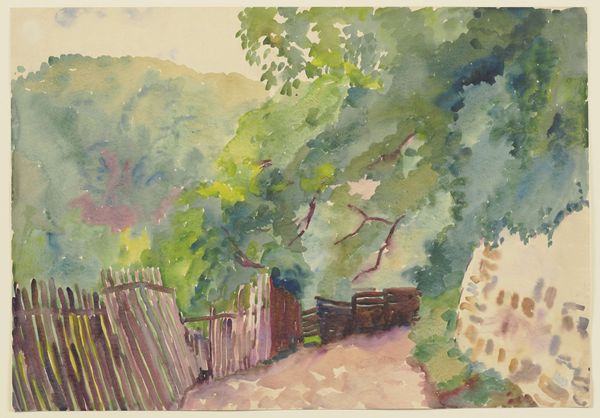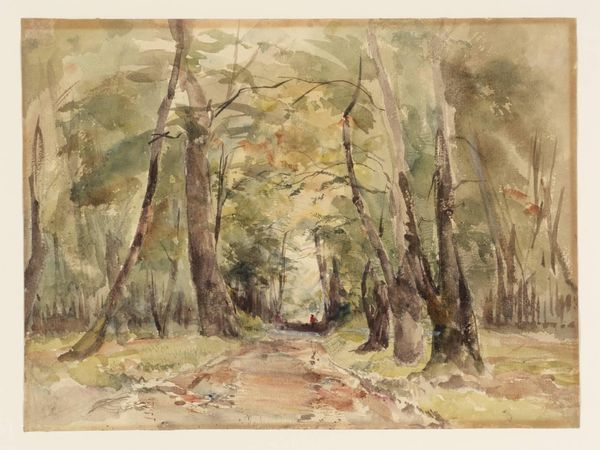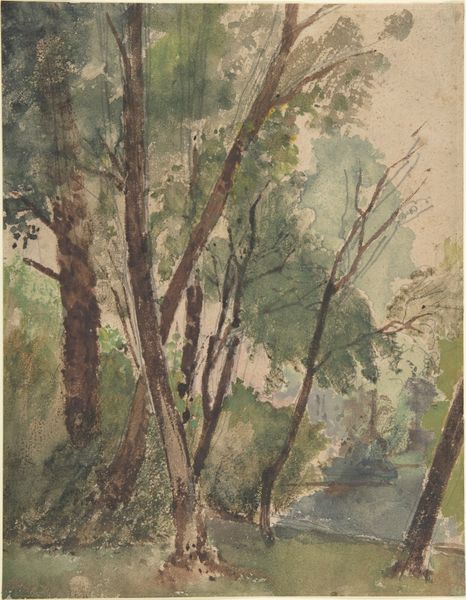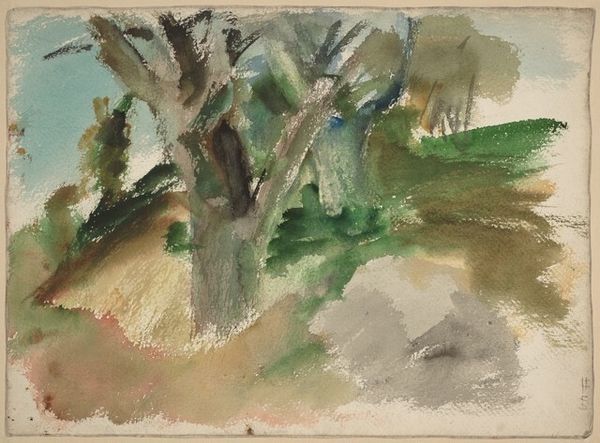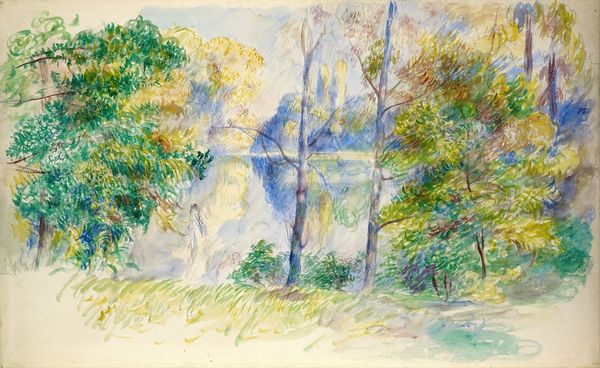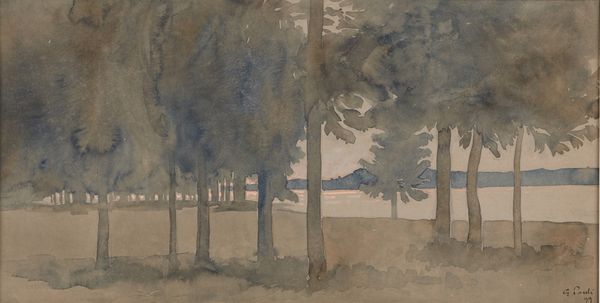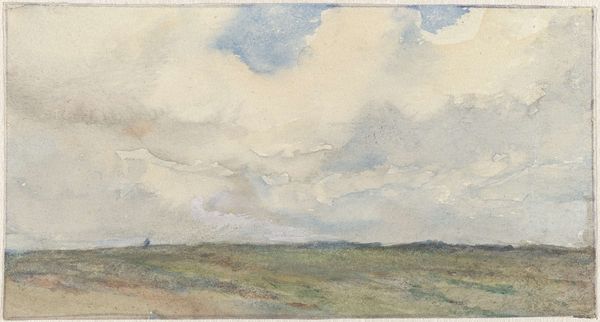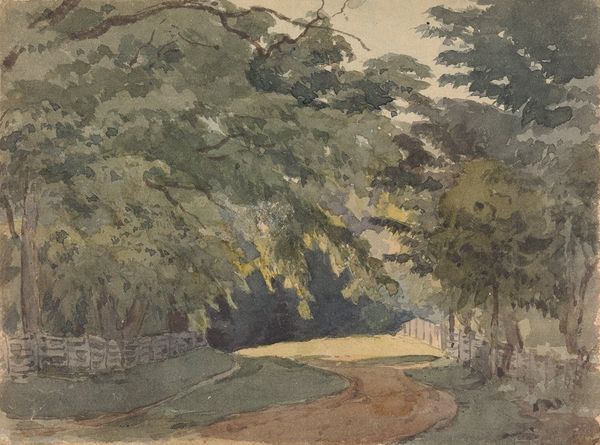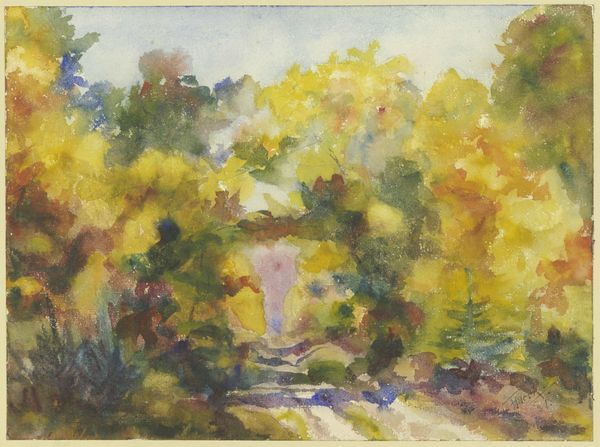
drawing, plein-air, watercolor, pencil
#
drawing
#
impressionism
#
plein-air
#
pencil sketch
#
landscape
#
watercolor
#
pencil
#
watercolour illustration
Copyright: Public Domain: Artvee
Jozef Israëls made this watercolor painting of a copse beside a road at an unknown date. Israëls was a Dutch painter who is best known for his realist scenes of rural life. This painting, like much of his work, embodies a kind of romantic nationalism and the institutional promotion of national identity. The use of watercolor lends a sense of immediacy and intimacy to the scene, inviting the viewer to contemplate the quiet beauty of the Dutch countryside. The painting also reflects a growing interest in nature and the environment that emerged in the 19th century. The rise of industrialization led to a sense of alienation from the natural world, and artists like Israëls sought to capture its beauty and tranquility in their work. Art historians consult primary sources like exhibition reviews to understand the social context of artistic production. Art is a product of its time, and its meaning is shaped by the social and institutional forces that influence its creation and reception.
Comments
No comments
Be the first to comment and join the conversation on the ultimate creative platform.
